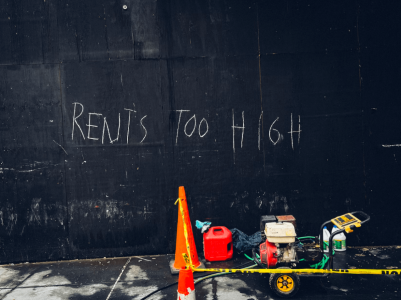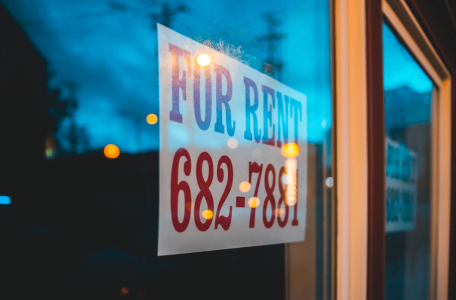71-year-old pensioner faces eviction after landlord doubles rent on her home of 13 years: ‘I don't want to leave’
- Replies 13
We've all heard about the cost of living crisis these days. Everything from groceries to housing keeps going up and up, making it difficult for many of us to make ends meet. But when we hear stories like this one, we can't help but feel for those who are struggling just to keep a roof over their heads.
Joan, a 71-year-old pensioner, sadly faces the prospect of eviction after her landlord doubled the rent for her rundown unit in Geelong, southwest of Melbourne.
This drastic increase has left Joan and her fellow pensioner neighbours feeling the pressure, as they now need to find an additional $177 per week, bringing their weekly rent up to $350.
Having lived in her humble abode for 13 years, Joan feels understandably heartbroken and worried. 'I wish it didn't come to this. I don't want to leave,' she said. Whilst the unit may not be particularly lavish, it has been her 'castle' for over a decade and holds significant sentimental value to her.

What makes this situation even more distressing is the array of ongoing issues that the residents of the unit block have been forced to endure, such as the crumbling carpets, a leak in the garage, and a door that opens to a dangerously large drop onto concrete - all of which have remained unresolved by the landlord.
Yet, despite these maintenance issues, the landlord still saw fit to double the rent without any prior warning.
This unfortunate incident not only highlights the current cost-of-living crisis but also demonstrates that pensioners are particularly vulnerable to being pushed towards the poverty line. 'There's five of us that are on the pension; now that's five pensioners out on the breadline,' Joan lamented.
'We might be homeless because we simply can't afford it,' she added tearfully. Similarly, Robert, another tenant from the same unit block, commented on this excessive rent hike: 'It's impossible, I can't afford to pay this rent.'
The federal government announced a $14.6 billion cost-of-living package in its latest budget, aimed at helping vulnerable citizens cover their living expenses. This includes support for rent and bill relief, with up to $31 extra per fortnight available for renters and $500 allocated to assist with rising electricity costs for eligible households.
Starting in September, JobSeeker payments are set to rise by $40 per fortnight, providing an extra $2.86 per day to recipients.
Despite these measures, some Australians are struggling to make ends meet, and Joan is one such example. While the government's package is a welcome relief, it is not enough for her to maintain her independence.
'I'm going to live with my son temporarily until I can find somewhere else to live. I went this morning to government housing, and they said there's a waiting list because they're giving to homeless people first,' she said.

The need for affordable housing in Australia remains a pressing issue, with tens of thousands of people on waiting lists across the country.
In Victoria, the waitlist currently sits at 57,672, while in New South Wales, 57,550 individuals are seeking affordable housing. Queensland has 27,437 on the waitlist, while Tasmania has 4405, Western Australia has 19,081, the ACT has 3,151, and the Northern Territory has 5,053.
The problem is particularly severe for older women, who are among the fastest-growing groups of homeless people. According to Ian Henschke from National Seniors Australia, approximately 20% of Australians living in pension poverty are single, older women who are renting.
While the government has announced measures to provide rent assistance, including a recent increase in Commonwealth Rent Assistance, Henschke argues that these measures are only keeping pace with rising rents. Further action is needed to ensure that all Australians have access to safe, affordable housing.

The issue of rent increases by unit owners has sparked discussions among social media users, with varying opinions expressed.
One user acknowledged that the tenant may have been fortunate to pay a lower rent initially but argued that rising costs of property maintenance necessitate passing on those expenses to tenants. 'Rental providers need to pass the costs, or there is no point owning an investment property,' they explained.
Another user expressed sympathy for the tenant's situation but acknowledged that property owners, whether private, relative, or government, will always make decisions based on economic factors.
However, some individuals came to the defence of tenants. One user advised taking the landlord to a tribunal, stating that a double rent increase would likely be viewed as excessive. They also shared a personal experience of challenging their own landlord in a tribunal and being successful, receiving compensation as a result.
The social media comments reflect a range of perspectives on the issue, with some sympathising with landlords' need to cover costs while others advocate for tenants' rights and legal action to address unfair rent increases.
What are your thoughts on this issue? In your opinion, should there be regulations in place to limit the amount landlords can increase the rent? Why or why not?
Also, how do you think rising property maintenance costs should be addressed without burdening tenants with excessive rent increases? Feel free to leave a comment below!
Joan, a 71-year-old pensioner, sadly faces the prospect of eviction after her landlord doubled the rent for her rundown unit in Geelong, southwest of Melbourne.
This drastic increase has left Joan and her fellow pensioner neighbours feeling the pressure, as they now need to find an additional $177 per week, bringing their weekly rent up to $350.
Having lived in her humble abode for 13 years, Joan feels understandably heartbroken and worried. 'I wish it didn't come to this. I don't want to leave,' she said. Whilst the unit may not be particularly lavish, it has been her 'castle' for over a decade and holds significant sentimental value to her.

A pensioner faces homelessness after her landlord doubled the rent on her rundown unit where she has lived for 13 years. Credit: Unsplash/Tierra Mallorca.
What makes this situation even more distressing is the array of ongoing issues that the residents of the unit block have been forced to endure, such as the crumbling carpets, a leak in the garage, and a door that opens to a dangerously large drop onto concrete - all of which have remained unresolved by the landlord.
Yet, despite these maintenance issues, the landlord still saw fit to double the rent without any prior warning.
This unfortunate incident not only highlights the current cost-of-living crisis but also demonstrates that pensioners are particularly vulnerable to being pushed towards the poverty line. 'There's five of us that are on the pension; now that's five pensioners out on the breadline,' Joan lamented.
'We might be homeless because we simply can't afford it,' she added tearfully. Similarly, Robert, another tenant from the same unit block, commented on this excessive rent hike: 'It's impossible, I can't afford to pay this rent.'
The federal government announced a $14.6 billion cost-of-living package in its latest budget, aimed at helping vulnerable citizens cover their living expenses. This includes support for rent and bill relief, with up to $31 extra per fortnight available for renters and $500 allocated to assist with rising electricity costs for eligible households.
Starting in September, JobSeeker payments are set to rise by $40 per fortnight, providing an extra $2.86 per day to recipients.
Despite these measures, some Australians are struggling to make ends meet, and Joan is one such example. While the government's package is a welcome relief, it is not enough for her to maintain her independence.
'I'm going to live with my son temporarily until I can find somewhere else to live. I went this morning to government housing, and they said there's a waiting list because they're giving to homeless people first,' she said.

This situation highlights a cost-of-living crisis that is pushing pensioners towards the poverty line. Credit: Unsplash/Jon Tyson.
The need for affordable housing in Australia remains a pressing issue, with tens of thousands of people on waiting lists across the country.
In Victoria, the waitlist currently sits at 57,672, while in New South Wales, 57,550 individuals are seeking affordable housing. Queensland has 27,437 on the waitlist, while Tasmania has 4405, Western Australia has 19,081, the ACT has 3,151, and the Northern Territory has 5,053.
The problem is particularly severe for older women, who are among the fastest-growing groups of homeless people. According to Ian Henschke from National Seniors Australia, approximately 20% of Australians living in pension poverty are single, older women who are renting.
While the government has announced measures to provide rent assistance, including a recent increase in Commonwealth Rent Assistance, Henschke argues that these measures are only keeping pace with rising rents. Further action is needed to ensure that all Australians have access to safe, affordable housing.
Key Takeaways
- A 71-year-old pensioner faces possible homelessness after her landlord doubled the rent on the unit she had lived in for 13 years.
- Joan and four other pensioners in the same block of apartments in Geelong, southwest of Melbourne, have seen their rent rise 100 per cent overnight.
- Affordable housing remains a critical issue in Australia, with tens of thousands of individuals on waitlists across various states.
The issue of rent increases by unit owners has sparked discussions among social media users, with varying opinions expressed.
One user acknowledged that the tenant may have been fortunate to pay a lower rent initially but argued that rising costs of property maintenance necessitate passing on those expenses to tenants. 'Rental providers need to pass the costs, or there is no point owning an investment property,' they explained.
Another user expressed sympathy for the tenant's situation but acknowledged that property owners, whether private, relative, or government, will always make decisions based on economic factors.
However, some individuals came to the defence of tenants. One user advised taking the landlord to a tribunal, stating that a double rent increase would likely be viewed as excessive. They also shared a personal experience of challenging their own landlord in a tribunal and being successful, receiving compensation as a result.
The social media comments reflect a range of perspectives on the issue, with some sympathising with landlords' need to cover costs while others advocate for tenants' rights and legal action to address unfair rent increases.
What are your thoughts on this issue? In your opinion, should there be regulations in place to limit the amount landlords can increase the rent? Why or why not?
Also, how do you think rising property maintenance costs should be addressed without burdening tenants with excessive rent increases? Feel free to leave a comment below!








